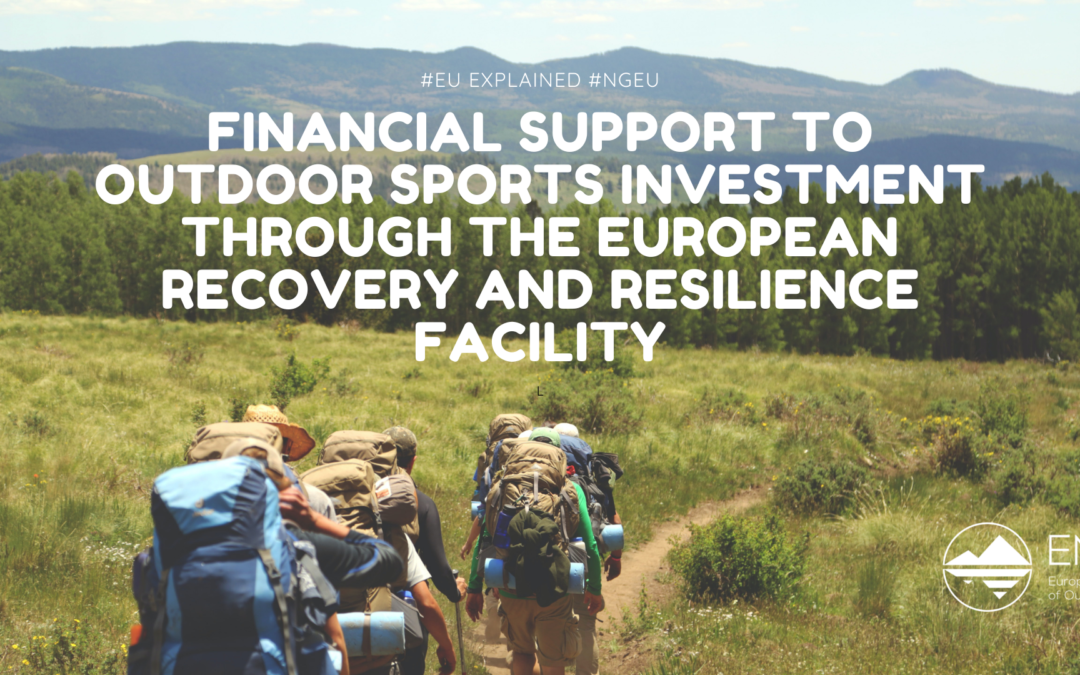At the end of April, EU Member States were invited to submit their plans to the European Commission ‘Recovery and Resilience Facility‘. This programme, which addresses environmental issues and digitalisation in priority, provides a total of 750 billion euros in grants and loans. A first review of national plans showed that a number of countries, such as France, Belgium and Spain have included sport in their plans, thus recognising its socioeconomic importance for the development of their economies.
April 30 marked the official deadline for Member States to submit the final version of their national Recovery and Resilience Facility (RRF) plan, “a temporary redress instrument that allows the Commission to raise funds to help repair the immediate economic and social damage caused by the coronavirus pandemic”.
The RRF is the key instrument at the heart of the EU recovery plan. The RRF will make available €672.5 billion in loans and grants to support reforms and investments undertaken by Member States. Member States are invited to focus their plans on certain key areas to foster a green and digital transition. Each national plan must devote at least 37% to investments in the field of environmental protection and at least 20% to the digital transition.
It is worth noting that some Member States mention sport in their recovery plans. For example, the French plan includes a sub-chapter entitled “Creating jobs for young people in sport”, which is supported by a separate financial budget. The Spanish plan includes a sub-chapter on “promoting cultural and sports industries” as a structural reform for sustainable and inclusive growth. The German and Portuguese plans do not contain specific sub-chapters on sport, but mention sport as an instrument for achieving specific objectives such as integration and early childhood education. On the other hand, nature sports are often included in priorities related to environmental transitions or green infrastructure. It is therefore necessary to check whether or not sport will be included in the various national plans. Outdoor sports stakeholders should therefore closely follow the national implementation guidelines in order to benefit from possible funding.
The European Commission’s SHARE initiative has recently published a valuable reference document on how the sport sector can potentially benefit from the new generation of EU funds. The document describes all NGEU programs, including not only the Recovery and Resilience Facility (RFF), but also REACT-EU and the Just Transition Fund.
ENOS and other sport stakeholders involved in the SHARE initiative called for the inclusion of sport in national RFF plans to recognize the role of sport and physical activity in a sustainable and healthy recovery process following the COVID-19 pandemic.
More information
Find out how the sport (and outdoor) sector can benefit from European funds Next Gen EU
Overview on the Recovery and Resilience Facility including links to all national plans already submitted

